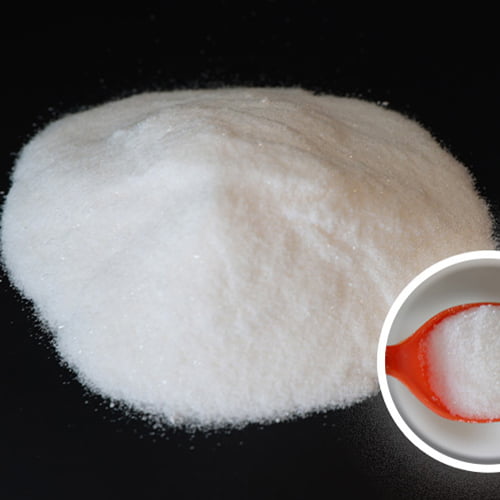Introduction

Sodium formate is a relatively simple molecule composed of sodium ions (Na+) and formate ions (HCOO-). It is typically produced by reacting formaldehyde with sodium hydroxide or sodium carbonate. Sodium formate is a white, crystalline solid with a slightly sweet odor and a melting point of 253°C (487°F). It is highly soluble in water and various organic solvents, making it easy to handle and incorporate into various applications.
Key Properties of Sodium Formate
- High Solubility: Sodium formate is highly soluble in water, making it suitable for aqueous-based applications.
- Stability: It is a stable compound with a long shelf life and resistance to degradation under normal storage conditions.
- Non-Toxicity: Sodium formate is relatively non-toxic compared to other industrial chemicals, reducing safety concerns.
- Écologique: It is biodegradable and considered an environmentally friendly alternative to some chemicals.
Applications industrielles
- Leather Tanning: Sodium formate is extensively used in the leather tanning industry as a bate and retanning agent. It helps improve leather quality by enhancing softness, flexibility, and tensile strength.
- Papermaking: Sodium formate serves as a dispersing agent in papermaking, improving the dispersion of cellulose fibers and enhancing paper quality.
- Industrie textile: In the textile industry, sodium formate is used as a dyeing and printing auxiliary, promoting dye uptake and improving colorfastness.
- Oil and Gas Exploration: Sodium formate finds application in oil and gas exploration as a corrosion inhibitor and scale preventer, protecting pipelines and equipment from corrosion and scale buildup.
- Travail des métaux : Sodium formate is used as a coolant and lubricant in metalworking processes, reducing friction and heat generation during machining and cutting operations.
- Adhesives and Sealants: Sodium formate is employed in the production of adhesives and sealants, enhancing their adhesion properties and extending their shelf life.
- Industrie pharmaceutique: Sodium formate has applications in the pharmaceutical industry as an intermediate in the synthesis of various drugs and pharmaceutical ingredients.
- Agriculture: Sodium formate is used as a feed additive for livestock, improving animal health and feed conversion efficiency.
- Battery Industry: Sodium formate is being explored as an electrolyte component in next-generation batteries due to its stability and non-toxicity.
- Environmental Applications: Sodium formate is used in wastewater treatment processes for odor control and hydrogen sulfide removal.
Table of Sodium Formate Applications by Industry
| Industrie | Application |
|---|---|
| Leather Tanning | Bate and retanning agent |
| Papermaking | Dispersing agent |
| Industrie textile | Dyeing and printing auxiliary |
| Oil and Gas Exploration | Corrosion inhibitor and scale preventer |
| Metalworking | Coolant and lubricant |
| Adhésifs et scellants | Adhesion enhancer and shelf life extender |
| Industrie pharmaceutique | Intermediate in drug synthesis |
| Agriculture | Feed additive |
| Battery Industry | Electrolyte component |
| Environmental Applications | Odor control and hydrogen sulfide removal |
Environmental Impact and Safety

Sodium formate is favored for its respectueux de l'environnement profile. It is biodegradable and has a low aquatic toxicity, which means it poses minimal harm to the environment. However, as with any chemical, proper handling and disposal are crucial to ensure safety.
Regulatory Compliance and Standards
Sodium formate is regulated by various agencies to ensure its safe use in different industries. Compliance with standards such as the U.S. Food and Drug Administration (FDA) regulations for use in the pharmaceutical and food industries is mandatory.
Conclusion
Sodium formate has emerged as an indispensable chemical compound with a wide spectrum of industrial applications. Its unique properties, coupled with its relative non-toxicity and environmental friendliness, make it a valuable asset in various industries. As research and development continue to uncover new applications, sodium formate is poised to play an even more significant role in shaping the future of industrial processes and products.
FAQ
Q: What are the safety precautions when handling sodium formate?
A: While sodium formate is relatively non-toxic, it is important to follow standard safety procedures when handling chemicals. Wear appropriate personal protective equipment, such as gloves, safety glasses, and a lab coat, to avoid skin and eye contact. Ensure proper ventilation and dispose of waste according to local regulations.
Q: How is sodium formate produced on an industrial scale?
A: Sodium formate is typically produced through the reaction of formaldehyde with sodium hydroxide or sodium carbonate. The reaction is carried out under controlled conditions to optimize yield and purity.
Q: What are some emerging applications of sodium formate?
A: Sodium formate is being investigated for potential applications in energy storage, such as flow batteries, and in the synthesis of biofuels and other renewable energy sources.


